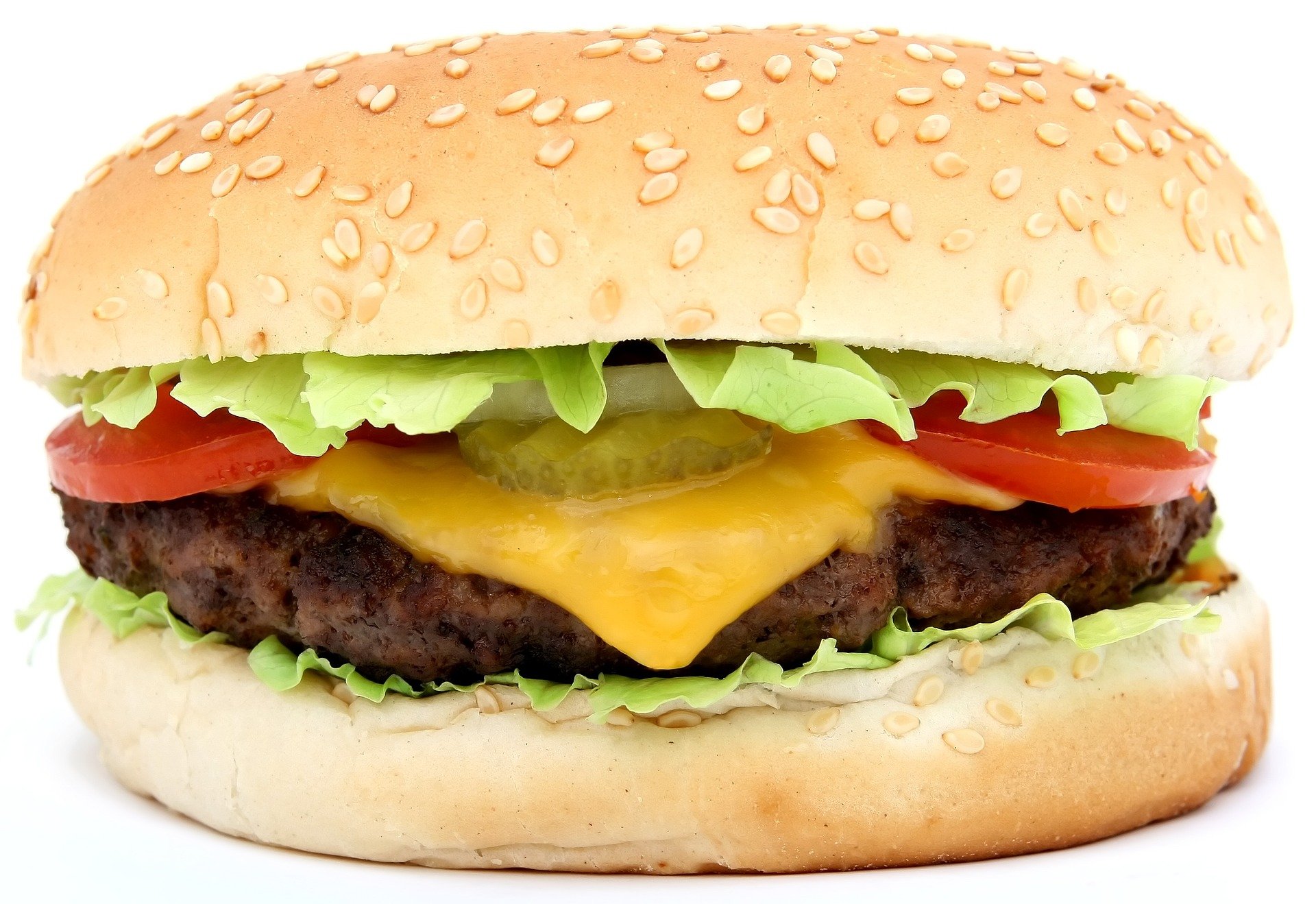I have been hearing a lot about the impossible burger these days and thought I would explore what all the hype was about. The impossible burger is the latest in attempts of plant based products that supposedly looks, tastes and even bleeds like real meat. You might be surprised to see how this compares and what it is made of though.
READ ON to explore if the Impossible Burger is a good plant based alternative….
The Impossible Burger is available in supermarkets as well as many fast food establishments and is being touted as a healthy alternative to beef. Supposedly it tastes good (according to the reviews), looks like ground beef and bleeds like ground beef. The impossible company reformulated this burger earlier this year and altered the ingredients removing wheat protein and decreased the fat content. Now, this burger is made primarily from soy. There are two types of soy used, soy protein concentrate and a controversial soy leghemoglobin. The leghemoglobin is an engineered product that is created from the base of a soy plant which is then inserted into genetically engineered yeast. This leghemoglobin/yeast combo is then fermented to mass produce this product. The leghemoglobin is responsible for the “bleeding” and color. The Center for Food Safety is challenging this byproduct saying it has not met any safety or testing standards. When a new food additive is on the market the normal path is that testing has to be done to prove it is safe for consumption. The FDA allowed the impossible burger to bypass this with a GRAS (generally recognized as safe) standing which allows the company to reportedly do it’s own testing. The Center for Food Safety has a lawsuit pending regarding the GRAS loophole for new food additives.
The soy in these burgers is all genetically modified which hopefully you know by now means that it has a genetically engineered structure to withstand more chemicals. There are hundreds of lawsuits regarding the glyphosate from Monsanto that is used heavily in similar crops. In addition, the nutritional value is quite different from real beef or even other non-meat “burgers”.
Let’s look at these side by side:
Impossible burger Beef 80%lean Beef 90 % Beyond Meat
Calories 240g 210 178 270
Total fat 14 g 14 9.6 20
Saturated fat 8g 6 3.8 6
Total carbs 9g 9 0 5
Protein 19 g 20 21 20
Sodium 370mg 75 75 380
Ok. Looking at these numbers you can see for yourself that if you are choosing the impossible burger for health value you might want to reconsider your options. Look closely at the calories, carbs and sodium. Most people are choosing this burger because they are looking for plant based options but the Beyond Meat burger (also sold in stores and some fast food places) might be a better choice because it is made from pea protein primarily and is non-GMO, non-soy as well as gluten free. Don’t forget the Boca burger which has been out for a long-time also. Boca burger has 100 calories, 13 grams of protein and 350mg of sodium. Get ready because fake chicken is already being taste tested in some KFC restaurants… wonder what that will be made of?
If you are a vegan or a vegetarian, just because you avoid animal protein does not mean you will be eating a healthier diet if you start using all of these substitutions and alternatives.
It’s hard avoiding animal products and there is a growing market for substitutes as a result. I am predominantly dairy free and I have to admit I do miss cheese but when I look at many of the cheese alternatives I cringe because I think some of the ingredients are terrible. Take home point: if you have dietary restrictions or preferences read your labels before assuming an alternative product is healthier. Focus on real food and you are on your way to a healthier diet.
To your health,
Laura









